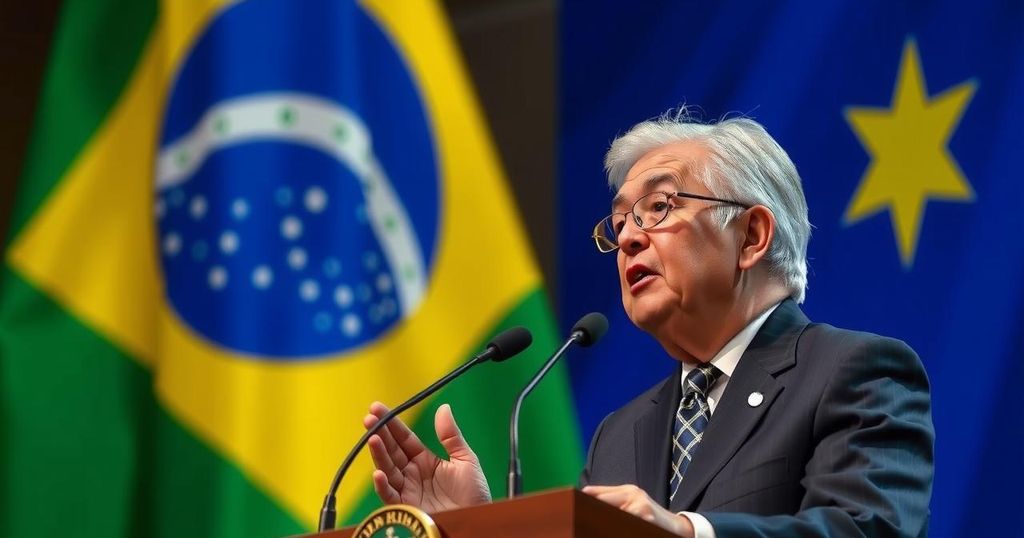Lula Launched Anti-Poverty Initiative at G20 Amidst Global Challenges

Brazilian President Lula da Silva launched an alliance at the G20 Summit to combat poverty and hunger, advocating for stronger climate action among world leaders. The summit, amidst geopolitical tensions and ongoing climate negotiations, saw participation from 81 countries, though Argentina abstained. Discussions are also focused on resuming stalled climate finance talks, with calls for enhanced global leadership.
At the Group of 20 Summit in Rio de Janeiro, Brazilian President Luiz Inacio Lula da Silva launched a global initiative to address poverty and hunger. During his address, President Lula stressed that these pressing issues are the result of deliberate political decisions and emphasized the significant threat posed by climate change. He urged world leaders to take immediate and effective action to combat these challenges. The initiative was signed by 81 nations, including almost all G20 members, with Argentina being the only exception due to its current administration’s stance. The summit is unfolding amid ongoing conflicts in the Middle East and Ukraine, which have become major topics of discussion, despite Ukraine’s exclusion from the guest list, as noted by Al Jazeera’s diplomatic editor. Russian President Vladimir Putin was absent from the proceedings, represented instead by Foreign Minister Sergey Lavrov, following an international arrest warrant against him. The presence of U.S. President Joe Biden at the summit is notable as it marks the end of his tenure as he seeks to solidify his climate legacy. The G20 members face increasing pressure to revive stalled climate negotiations currently taking place in Azerbaijan, where discussions on climate finance for developing countries are at a standstill. UN Secretary-General Antonio Guterres has called for decisive leadership from the G20, which contributes to 80% of global emissions, to facilitate a comprehensive agreement for climate funding. Additionally, security concerns were heightened at this summit following a failed bombing attempt at Brazil’s Supreme Court. Separate from the main agenda, President Xi Jinping of China announced a collaborative initiative with Brazil, South Africa, and the African Union aimed at advancing technological innovations for the Global South. This comes at a time when the U.S. and its allies impose restrictions on high-tech exports to China, affecting its technological sectors.
The Group of 20 (G20) Summit serves as a platform for the world’s largest economies to address global economic challenges and foster cooperation. This particular summit is colored by urgent issues such as persistent poverty levels and the devastating effects of climate change, which have gained heightened attention in recent international forums. The backdrop of impending climate talks and ongoing geopolitical conflicts in Ukraine and the Middle East adds complexity to the discussions among member states. President Lula’s initiative reflects a growing recognition of the link between political choices, poverty, and environmental challenges.
In summary, the G20 Summit held in Brazil highlighted President Lula’s commitment to tackling poverty and hunger through a new global alliance. Amidst significant global challenges, including wars and climate inaction, the initiative garnered support from a majority of nations, emphasizing a collective effort to find solutions. The presence of major leaders, alongside discussions on climate finance and technological cooperation, signifies the urgency for effective policies to address these pressing issues.
Original Source: www.aljazeera.com








